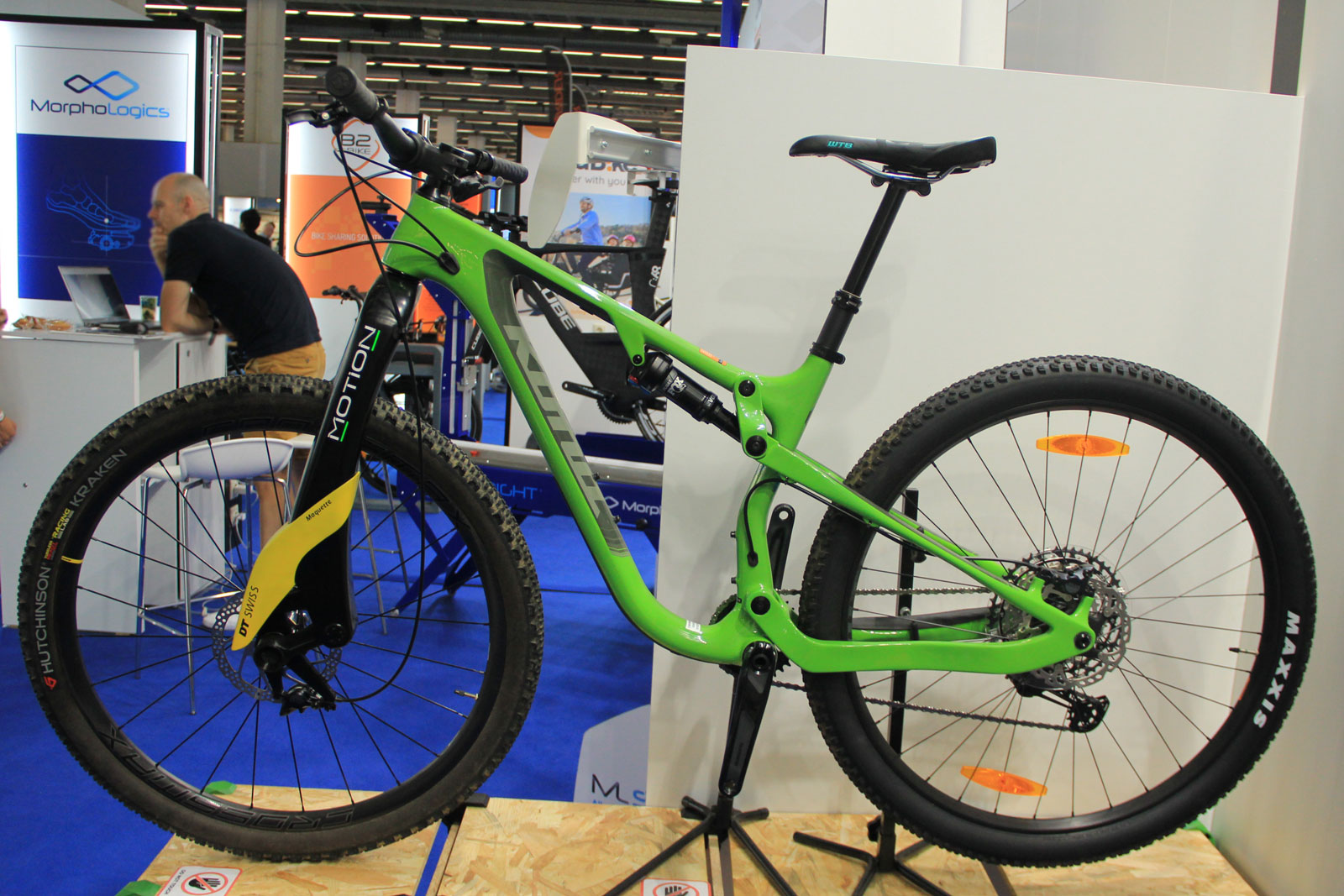Motion Engineering, better known for their wild-looking E18 180mm travel leaf-sprung fork, are working away on a very lightweight 120mm travel leading-linkage fork that relies upon a standard rear shock for damping. At Eurobike, the 3D printed prototype was fitted to a Kona Hei Hei CR. We got the details on Motion’s this futuristic XC fork from Mechanical Engineer, Finan Levingston.
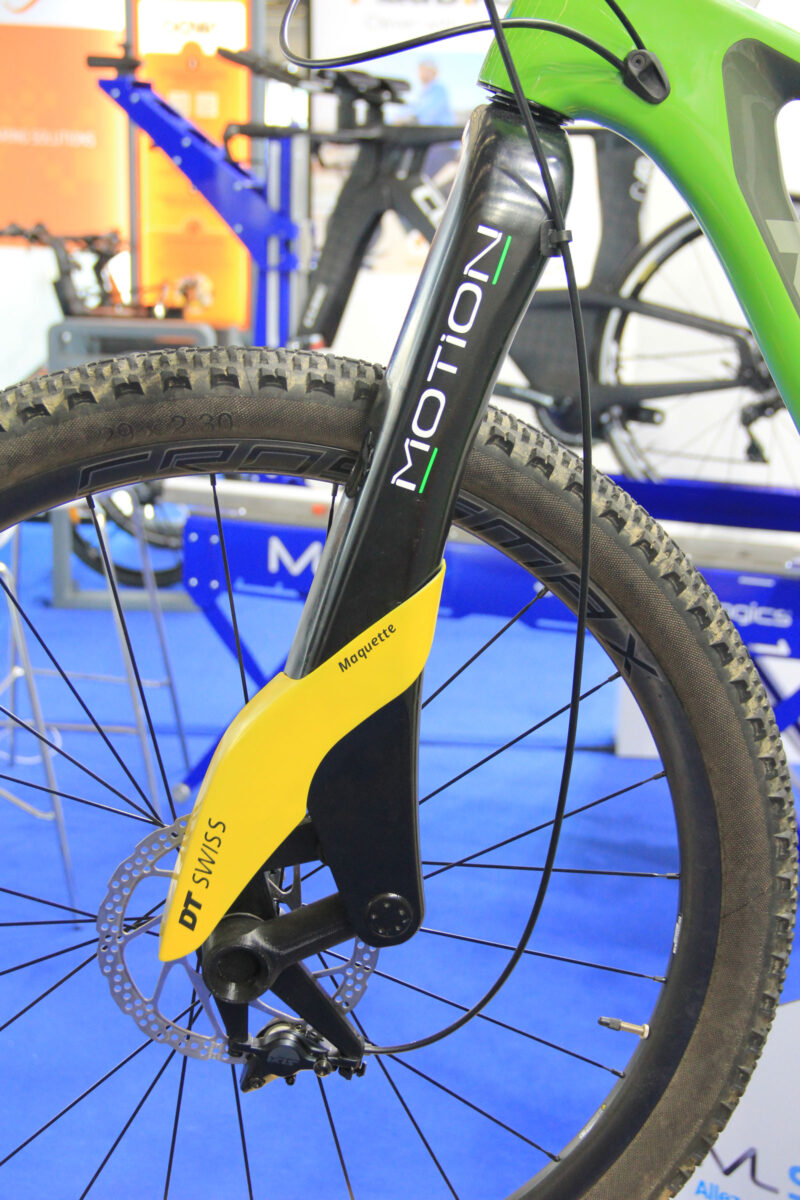
Motion Engineering’s 120mm Leading-Linkage Fork
Motion’s 120mm XC fork, the 3D printed model of which you see here, is 1.5 years in the making. The project stems from the company’s belief that cross-country mountain bike forks can be way lighter, and way more simple, than the ubiquitous telescopic forks we see on the market, and on the race tracks, today.
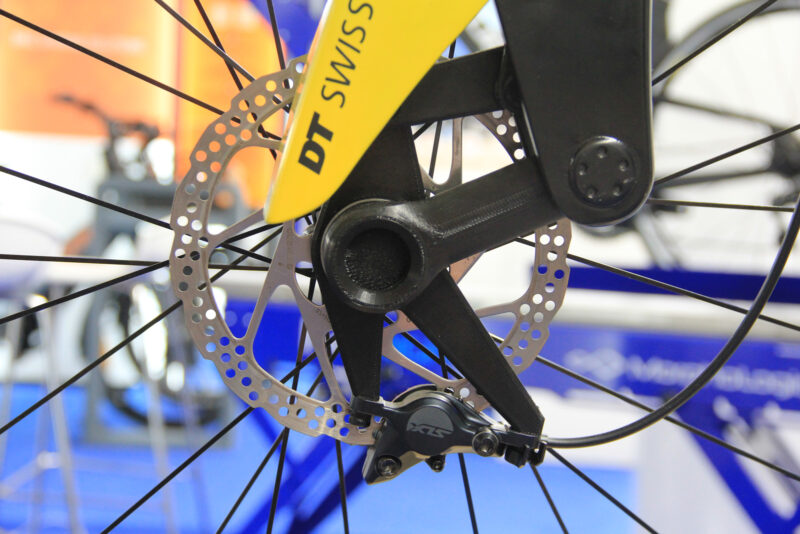
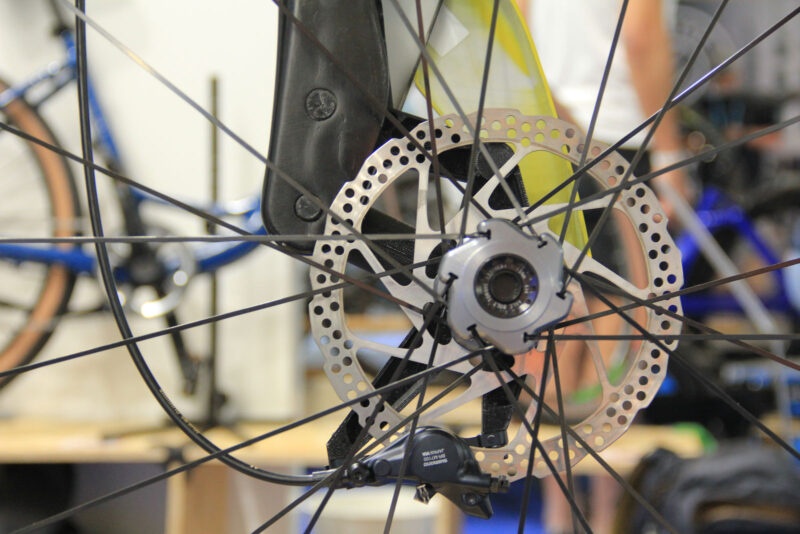
On this basic prototype, an air shock mounted almost vertically behind that DT Swiss branded cover, is driven from below by a rocker. At the base of the fork, on the non-drive side, you’ll see what looks to be two rockers. The top one drives the shock, while the lower rocker serves to prevent braking forces from forcing compression or extension of the shock.
Indeed, this design aims to overcome this drawback of a common telescoping design wherein front wheel braking can force the fork into compression, something that is often referred to as fork dive. With the brake caliper mounted to the lower rocker, or torque arm, those forces are isolated from the suspension’s action, such that it neither has a tendency to dive, or rise, when the rider grabs the front brake.
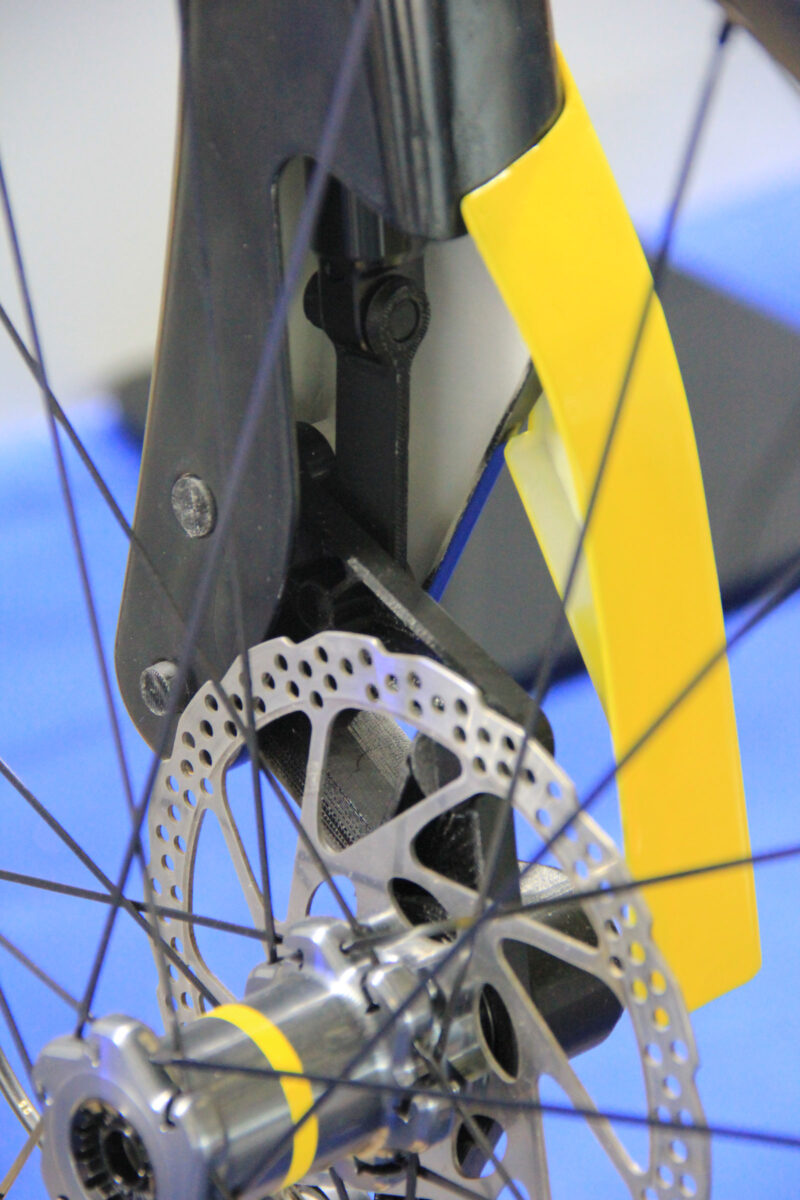
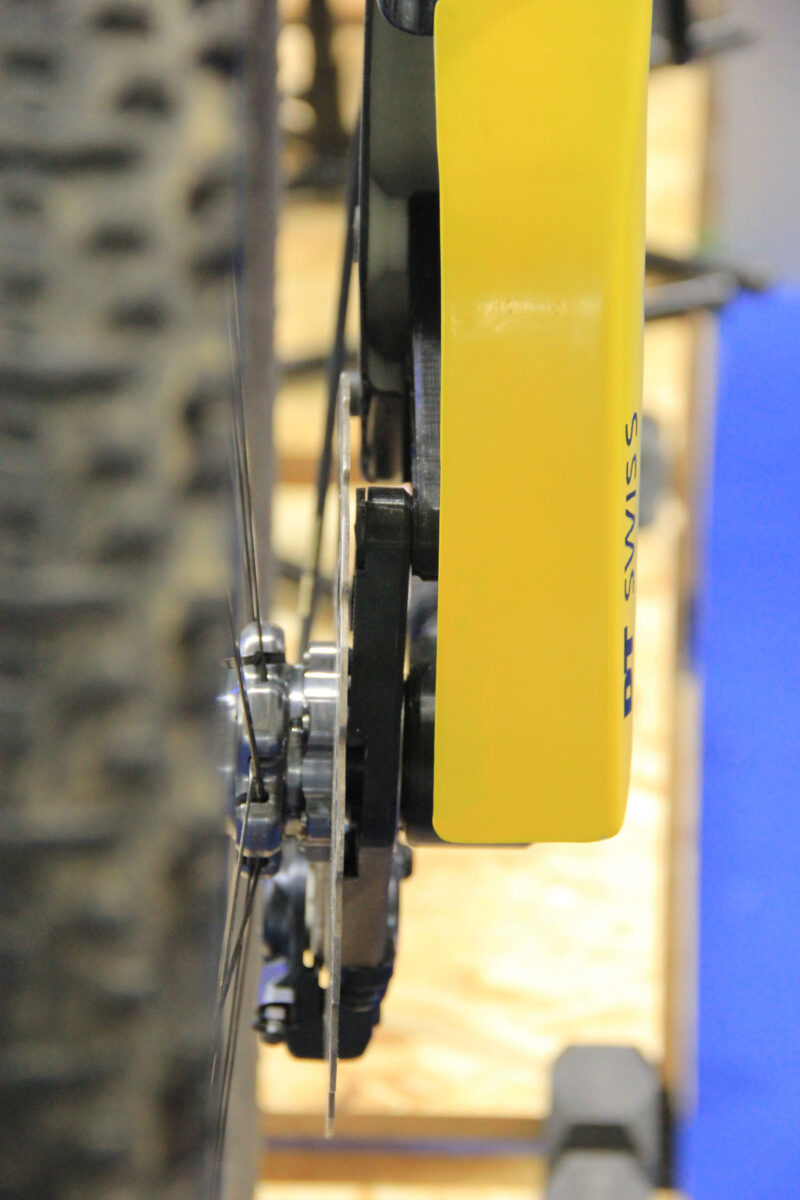
That matters on the trail, because if braking is robbing you of early-stroke travel, there is less stroke available to absorb actual bumps you might encounter. And, when you do hit a bump while braking, the fork has moved deeper into its travel where more force is required for compression. If the Motion XC fork can stay high in its travel under braking, then it stands to reason that it will maintain more of its small bump sensitivity with more travel in reserve.
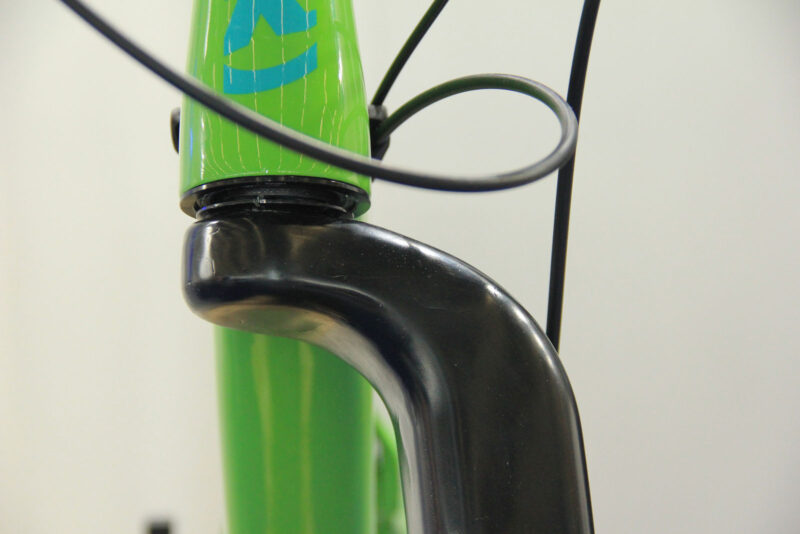
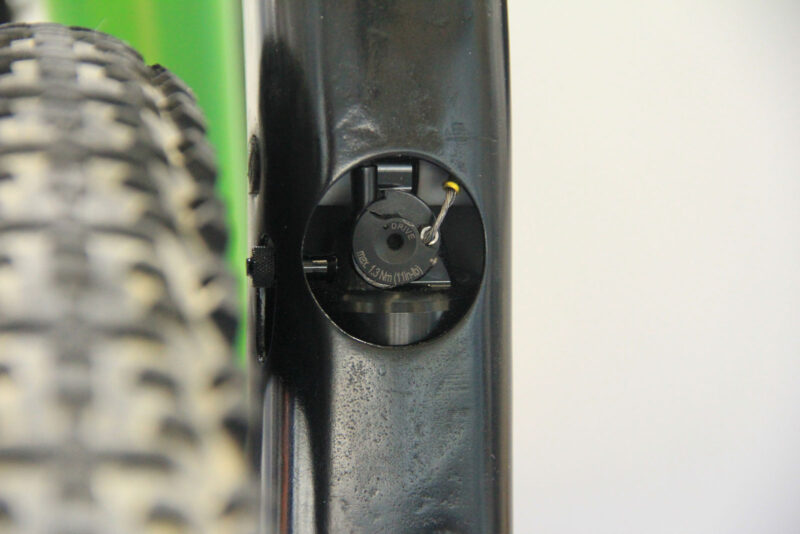
And, this one’s a half-crown design. This goes a long way to bringing down the fork’s overall weight. This was one of Motion’s top priorities; they wanted to make an XC fork that is lighter than the Rockshox SID Ultimate, which is currently one of the (but not the) lightest 120mm travel mountain bike forks money can buy. That weighs around 1,300 grams, while Motion Engineering’s equivalent leading-linkage design weighs a claimed 1,200 grams – we’re waiting to hear back on which shock that uses.
The fork leg, if you will, will be a monocoque carbon design, with a carbon steerer tube molded as part of the same structure.
Motion Engineering’s aim is to work closely with brands to develop a fork as part of their frames. Indeed, the plan is for this 120mm travel offering to be an OEM component only, and thus not available aftermarket. Motion will offer brands the opportunity to tune the fork’s linkage to their needs, giving them more control over how the frame works in conjunction with the behavior of the front end of the bike.
Mechanical Engineer, Finan Levingston, tells us that the Motion fork will exhibit much less friction than a modern telescoping fork, thus conferring improved small bump sensitivity. And of course, compression of the shock is controlled via a linkage, so tuneable progression can be engineered into the linkage, just as brands do for a frame linkage.
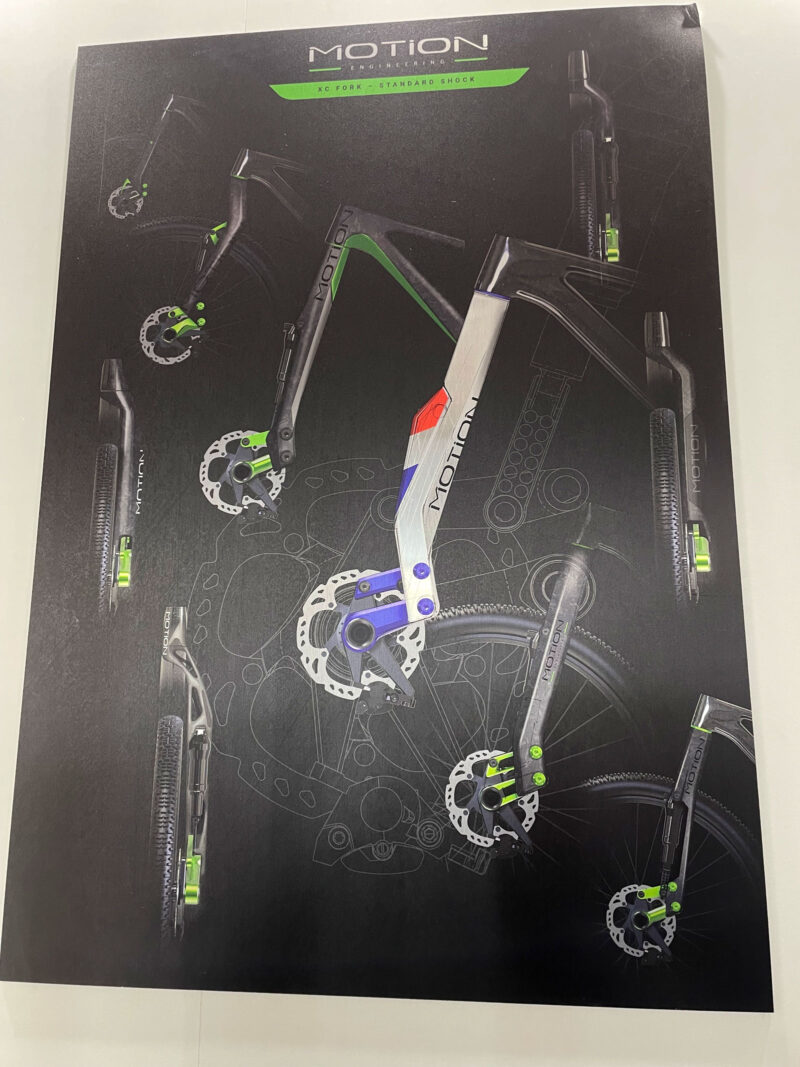
The 3D printed fork on display at Eurobike is one of Motion’s more basic designs, but a poster on the wall at their booth depicts a number of possible iterations of the leading-linkage design.
We’ll keep in touch with the folks at Motion Engineering to keep you guys updated on developments as and when they come. Finan was very vague about it, but did mention the possibility of bikes rolling out of stores with a design very similar to this one as early as May 2024.
What about Motion Engineering’s World Cup Racing Ambitions?
Finan was careful not to mention any brand names here, but he did say that we can look forward to seeing Motion’s 120mm travel leading-linkage fork on World Cup XC Race Bikes in 2025.
